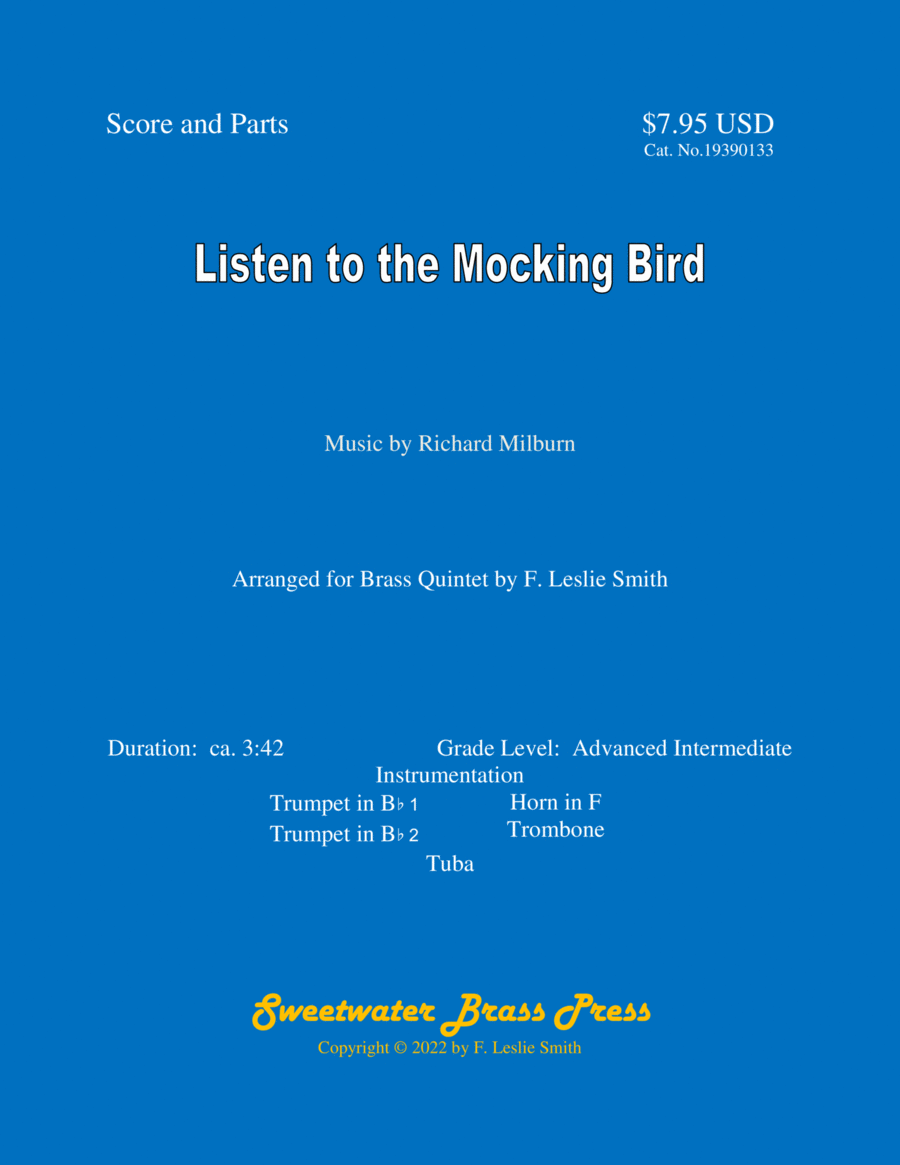Horn,Trombone,Trumpet,Tuba - Level 3 - Digital Download SKU: A0.1148567 Composed by Music by Richard Milburn. Arranged by F. Leslie Smith. Country,Folk,Historic,Traditional. 27 pages. Sweetwater Brass Press #748729. Published by Sweetwater Brass Press (A0.1148567). Listen to the Mocking Bird was first published in 1855. The melody originated with Richard Milburn, a Philadelphia African-American who has been described variously as a panhandling busker and as a musically inclined barber. A songwriter and publisher by the name of Septimus Winner heard Milburn's tune, arranged it, added words, put it into print and claimed credit for its creation under the pseudonym Alice Hawthorne. Supposedly, Winner sold the rights to the song for five dollars. Listen to the Mocking Bird grew to be one of the most popular songs of the mid-19th century, a real hit. Its sheet music, by one estimate, sold more than 20 million copies. It was sung and performed particularly often during the Civil War, and troops used its melody as a marching tune. It remains somewhat of a standard and has been recorded numerous times, especially as a favorite of bluegrass musicians. In the lyrics, the singer is remembering his loved one. She has passed away but he recalls their good life together. They particularly enjoyed the call of the mocking bird, which even now is singing o'er her grave. This arrangement opens in E-flat major with Trumpet 1 introducing the sweetly sad melody, I'm dreaming now of Hally. After the introduction, the tempo picks up to allegro and whirls along. It does slow down several times, and there are four one-measure deviations from the 4/4 time signature: one 6/4, two 2/4s and one 1/4. At measure 65, the key changes to B-flat major for the finale. Trumpets 1 and 2 each play one A-above-their-staff eighth note as their highest pitch; the rest of the music stays well within the normal playing range of the five instruments. Completed in 2022, performance time runs about 3 minutes, 23 seconds. The arranger, Les Smith, will be happy to provide substitute parts (for example, treble clef baritone for trombone) at no charge. He would like to receive your suggestions, comments, corrections and criticisms. For more arrangements by Les, enter Sweetwater Brass Press (without the quotation marks) in the Sheet Music Plus or Sheet Music Direct search box. (Also, purchase of this piece entitles you to your choice of another of his arrangements at no charge; send a copy of your purchase receipt directly to him at lessmith61@bellsouth.net.)
